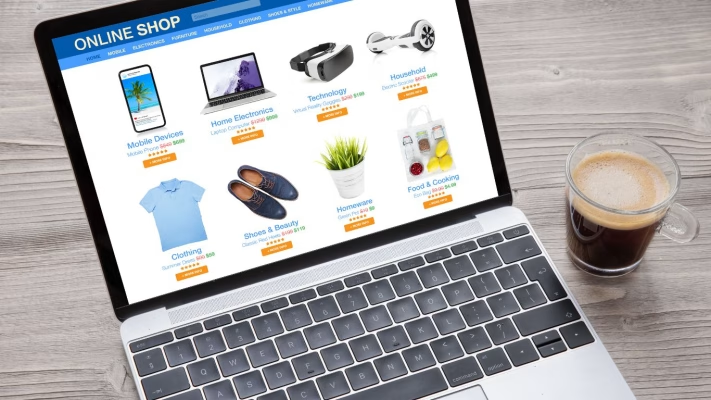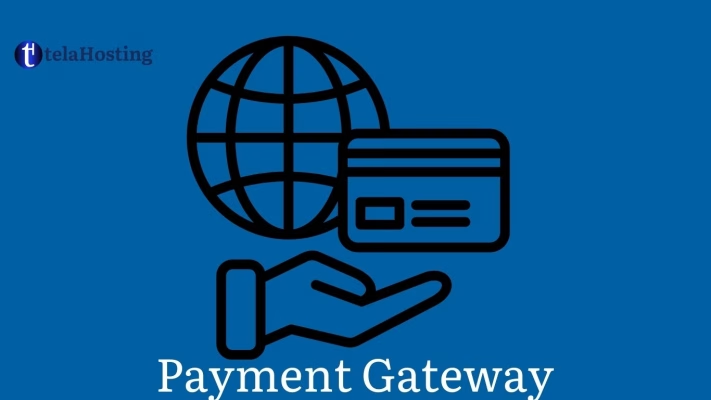
Imagine this: As you browse Instagram while enjoying some cool zobo beneath the fan in the sweltering heat of Lagos, you suddenly notice a stunning advertisement for Ankara shoes. After you click and place your order, it will be on its way in two minutes. That’s what makes Nigerian internet sales so magical these days.
We now purchase and sell entirely differently, in case you haven’t noticed. Online sales in Nigeria are expanding more quickly. It’s thrilling, and has a lot of potential for financial gain. The internet is your goldmine, if you know how to mine it properly, whether you’re selling locally manufactured skincare products, imported electronics, handcrafted jewelry, or even services like tutoring or hairstyling.
The worst part is that a lot of Nigerian business owners are still having difficulty earning the kind of money they need to be earning online. Why? due to the fact that they are either doing it incorrectly or not at all.
I want to help you, yes, you—make your online business a source of income. In order to assist you not only survive but thrive in Nigeria’s internet economy, we will discuss clever tactics, juicy marketing ideas, and direct guidance. Are you prepared to increase your online sales revenue? Come on.
Understanding the Nigerian E-Commerce Landscape
You need to first understand the landscape if you’re serious about increasing your internet income in Nigeria. Similar to a Lagos market, Nigeria’s e-commerce industry is thriving, competitive, and offers a wealth of chances if you know where to search.
Nigeria’s e-commerce sales reached over $7 billion in this 2025, and it is expected to increase even further in 2026, according to Statista. More than half of Nigeria’s 70 million internet users shop on their phones. That’s a lot of people with money and eyes eager to see your stuff.
Important Players in the Game:
- Jumia: The big boss of e-commerce in Nigeria. From electronics to groceries, you can sell almost anything.
- Konga: Another veteran player with a strong logistics backbone.
- PayPorte, Flutterwave Store, and Pocket by PiggyVest: Newer players with unique offerings tailored to small businesses.
But don’t forget social platforms like Instagram, WhatsApp, and TikTok—many Nigerian businesses are making millions right there, without even having a website!
Challenges to Consider:
Now, things aren’t perfect. Nigeria has its own wahala on the internet: Poor logistics in isolated locations; erratic internet service; worries about fraud; problems with payment gateways.
But you know what? With careful planning and the appropriate resources, you can transform all of these obstacles into possibilities. You’re here to pay out, not to dodge trouble, aren’t you? So let’s continue.
How to Boost Revenue Through Online Sales in Nigeria
1. Building a Profitable Online Presence

Let’s talk about your online sales. Imagine opening a shop in Ikeja without a signboard or even proper shelves. Customers will just pass. That’s exactly what happens when you don’t build your digital foundation well.
Start with a website. I cannot shout this enough—own your space online. A website is your digital property. It’s the place where customers get to know you, trust you, and pay you. It works 24/7, even when you’re sleeping.
But not just any website. You need a fast, secure, and mobile-friendly one. That’s where telaHosting comes in.
Why Choose telaHosting?
- Reliable uptime: Your site won’t randomly disappear.
- Fast loading speeds: No one likes to wait for a site to open.
- Affordable packages: Whether you’re a small startup or growing brand, there’s a plan for you.
- Excellent customer support: When NEPA strikes or something goes wrong, they’ve got your back.
Don’t Forget the Basics:
- A clean, professional layout
- Easy-to-navigate menus
- Clear product categories
- A contact page and live chat or WhatsApp button
You want people to land on your site and immediately feel, “Yes, this person is legit.” That trust is what turns browsers into buyers.
2. Optimizing Your Online Store for Sales

Having a website is great, but it’s not enough. Now let’s make sure it’s a money-making machine. Think of your site like a boutique, you want it clean, pretty, and easy to shop from.
(A). Speed is Everything
Imagine clicking on a website, and it’s taking forever to load. What’s your first reaction? Close the tab, right? Your customers are no different. If your site takes longer than five seconds to load, many will bounce—and probably head straight to your competitor who loads in two seconds flat.
Speed affects everything from user experience to search engine ranking. A slow website is equivalent to lost money.
Here’s what you can do:
- Optimize Images: Compress large photos without sacrificing quality. Tools like TinyPNG or WebP format work wonders.
- Use Light Themes: Heavy themes with too many effects can slow you down. Choose clean, minimalist designs that still look professional.
- Minimize Plugins: Too many plugins, especially on WordPress, can drag down speed. Stick to only the essentials.
- Choose Reliable Hosting: We at telaHosting offers fast, secure, and optimized servers specifically built for Nigerian websites. No more downtimes or crawling speeds.
Tip: Test your site speed using tools like Google PageSpeed Insights or GTmetrix . Aim for green scores across all devices.
(B). Make It Mobile-Friendly
over 80% of online shoppers in Nigeria are browsing and buying from their phones. So if your website doesn’t look great and function smoothly on mobile, you’re in big trouble. It’s like trying to sell fine shoes at night in a poorly lit market—people can’t see what they’re buying. A mobile-unfriendly website is a revenue killer.
Here’s what to fix:
- Responsive Design: Your website should automatically adjust to fit any screen size, whether it’s a big tablet or a tiny Android phone.
- Big, Clickable Buttons: No one wants to pinch-zoom and tap tiny buttons. Use large, visible CTAs like “Add to Cart” or “Buy Now.”
- Simplified Navigation: Make it easy to find products, categories, and the checkout page with just a few taps.
- Easy Checkout Process: Reduce steps. Autofill fields where possible. Avoid requiring users to create an account before buying.
- WhatsApp Integration: Add a floating WhatsApp button for quick customer inquiries. Nigerians trust WhatsApp—it feels personal and safe.
Try this: Pretend you’re a customer and buy something from your store on your own phone. If it feels clunky, fix it.
(C). Product Listings that Actually Convert
Let’s be honest, blurry photos and vague descriptions won’t sell easily. Your product listings are your salespeople—they do all the convincing for you. If they’re weak, your revenue will be too.
Think of each product listing as a mini billboard that needs to scream: “This is perfect for you—buy it now!”
What your listings should include:
- High-Quality Photos: Use multiple images showing different angles, details, and product use. Natural lighting works best. If you sell fashion, include photos of someone wearing it.
- Clear, Compelling Titles: “Red Dress” won’t cut it. Try “Elegant Red Ankara Bodycon Dress – Size S to XXL.”
- Detailed Descriptions: Mention size, color, fabric, care instructions, benefits, and what makes it unique.
- Trust Elements: Include reviews and star ratings. Testimonials build confidence and increase conversions.
- Urgency Phrases: Words like “Only 3 left,” “Fast-selling,” or “Limited Edition” can nudge the buyer into taking immediate action.
Here’s a quick before-and-after example:
| Listing Element | Bad Example | Good Example |
| Title | Red Dress | Elegant Red Ankara Bodycon Dress – Size S to XXL |
| Image | One blurry photo | 3 high-res photos (front, back, on model) |
| Description | Nice dress. | Handmade with vibrant Ankara fabric. Fitted design with zip closure. Perfect for parties or weddings. |
| Call to Action | None | “Order Now – Only 5 Left in Stock!” |
Remember: Your goal is to remove every doubt in the customer’s mind before they click “Buy.”
(D). Design Psychology
Have you ever walked into a store and immediately felt the urge to shop, even when you didn’t plan to? That’s design psychology. Your website should trigger emotions that lead to purchases.
Color, layout, and visual cues all play a role in decision-making.
Design Tips That Drive Sales:
(a). Use Strategic Colors:
- Red: Triggers urgency and excitement. Perfect for clearance sales and “limited time offers.”
- Blue: Builds trust and security. Ideal for checkout pages.
- Green: Associated with growth, peace, and affordability.
(b). Add Countdown Timers: Create urgency by showing a ticking clock for flash sales or discount periods.
(c). Popup Offers: Give first-time visitors a 10% discount or free delivery if they subscribe. Just don’t make it annoying.
(d). Sticky “Buy Now” Buttons: Always keep the purchase button visible, especially on mobile. Makes checkout easier.
(e). Clean Layout: Avoid clutter. Keep things easy to read, with plenty of white space.
Try Using heatmaps (like Hotjar) to see where users click most. You’ll discover what grabs attention and what doesn’t.
By focusing on these details, you’re not just creating a website—you’re building a shopping experience that makes people come back again and again.
3. Leveraging Social Media to Drive Sales

This is Nigeria, where people spend hours on Instagram and TikTok, scrolling through reels, gossip, and products. So if you’re not using social media for your business, you’re leaving money on the table.
(A). Pick Your Platform Wisely
- Instagram for fashion, beauty, and lifestyle brands
- TikTok for viral products and Gen Z
- Facebook for older demographics and local communities
- WhatsApp for customer support and order confirmation
(B). Content is King
Show your products in action. Post testimonials, behind-the-scenes, “how to use” videos, and customer reviews. Make your brand relatable.
Talk to your audience like you’re talking to your friend. No boring posts. No stiff captions. Make it fun, engaging, and visual.
(C). Use Influencers
You don’t need to pay ₦500K to get Tiwa Savage to post for you. Micro-influencers with 5,000–50,000 followers can give better return on investment (ROI). They’re more relatable and their audience is more engaged.
Create a story. Not just “Buy my product.” Tell people why they need it.
4. Digital Marketing Strategies to Drive Engagement

You could be waiting a very long time if you’re hoping customers will stumble upon your internet store. Digital marketing can help with that. It’s similar to yelling in a busy marketplace, but more elegant and accurate.
Let me to demonstrate what functions well in Nigeria’s constantly changing digital environment.
(A). SEO (search engine optimization)
This simply means that when people search on Google, your website will show up. Should someone search for “affordable sneakers in Lagos” and find your website? That’s how SEO works.
How to achieve it:
- When creating product titles and descriptions, use keywords such as “cheap phone accessories in Nigeria.”
- Write blog posts that provide solutions to frequently asked questions, such as “Top Ankara wedding styles for 2025.”
- Add alt text to your images (Google loves that).
- Use location-specific keywords like “Abuja delivery” or “Ikeja boutique.”
SEO takes time, but once you start ranking, the free traffic will change your life.
(B). Email Marketing That Feels Personal
Nigerians love deals and exclusivity. Build an email list and send:
- Weekly discounts
- Product launches
- Flash sales
- Birthday messages
Use tools like Mailchimp or Sender, but don’t be annoying, make it personal. Use their name, tailor offers to their interests, and always give them the option to opt-out.
(C). Paid Ads
If you’ve got a small budget, invest it wisely. Here’s what works:
- Facebook Ads: Great for older adults, runs well in rural areas with slower internet.
- Instagram Ads: Visual and powerful for fashion, food, or beauty.
- Google Search Ads: Perfect for targeting people already looking to buy something.
Start with ₦5,000, test different audiences, and track your conversions. Don’t boost blindly. Always use Facebook Ad Manager for precision targeting.
(D). WhatsApp Broadcast and Status Updates
Yes, even WhatsApp is a marketing tool now. We love chatting on WhatsApp, so create a business account and:
- Share your latest products
- Post behind-the-scenes content on status
- Send bulk messages to regular buyers
Just make sure you’re not spamming. Be strategic.
5. Mastering Payment Gateways and Logistics

If there’s one thing that can kill an online sale faster than NEPA taking light, it’s a failed payment or messy delivery. So, let’s find a way to fix that.
(A). Reliable Payment Gateways
You need a secure, easy-to-use payment gateway. Nigerians are still cautious about online transactions, so trust is everything.
Best Payment Options in Nigeria:
| Payment Gateway | Features | Cost |
| Paystack | Easy setup, mobile-friendly, supports cards, transfers | 1.5% – 3.9% per transaction |
| Flutterwave | Recurring billing, global payments, e-wallets | 1.4% – 4% |
| Monnify | Affordable and made for small businesses | Low transaction fees |
| Remita | Great for service-based platforms and subscriptions | Variable pricing |
Also, include bank transfer options and display your business account name clearly to build trust.
(B). Logistics and Delivery
The challenge is genuine if you’ve ever had to tell a rider where your street is three times. In Nigeria, delivery is about dependability as much as speed. Do your best and get a reliable and fast logistics because without it your business can easily break.
Nigeria’s Top Courier Services:
- GIG Logistics: Quick and Nationwide
- Kwak Delivery: Excellent for Abuja and Lagos
- DHL: For orders coming from overseas
For orders that are nearby, you should provide same-day delivery; for orders that are inside city borders, next-day delivery; and for local clients, pick-up choices. keep track of everything. Provide updates via email or SMS. Nigerians are curious about the location and time of their package. They will ghost your company if you ghost them.
(C). Handling Refunds and Returns
Set a clear return policy. Display it boldly on your site. Make it fair. Offer store credit or easy exchanges. This builds confidence and loyalty. Specify the tmeframe for processing refunds e.g 3-5 days e.t.c Also epecify who is responsible for return shipping cost.
By implementing these strategies you can effectively handle returns and refunds while ensuring satisfaction and loyalty.
6. Customer Service That Converts

Let me tell you a secret: people don’t remember how fast their order came. They remember how you made them feel. Customer service is the soul of your online business. Done right, it becomes your biggest marketing tool.
- Respond Fast: Nigerians don’t wait around. (You know it’s true!) Respond as soon as possible if someone messages you regarding a product. Install live chat features on your website, use WhatsApp Business Auto Replies, and always be courteous, even when your clients aren’t.
- React Quickly: As i said people forget how quickly their orders arrived. They recall the feelings you evoked in them. The foundation of your internet business is customer service. When done correctly, it becomes your most powerful marketing tool.
- Make Everything Your Own: Refer to clients by name. Inquire about their experience. Suggest similar products. Give them the impression that you are more than just interested in their money.
- Make use of friendly, conversational words: For example: Hi Tosin! Just letting you know your order has been packed and is on its way. You’ll love it! or Thanks for ordering again! We added a small gift just for you.” e.t.c.
- Use Feedback to Improve: Send out short surveys. Ask for reviews. Use this feedback to improve your packaging, delivery, or even product quality.
Bonus Tip: If a customer has a problem, fix it fast and throw in a small discount or freebie. They’ll become your biggest promoter.
8. Pricing Strategies to Maintain Profits

Let’s discuss money. Surely you want to turn a profit? You want to maintain your competitiveness, though. Setting your product prices is important for presenting your business, not only for making ends meet.
(A). Pricing in the mind
Have you ever wondered why some items cost ₦9,999 rather than ₦10,000? It feels less expensive because of that small difference, so use this strategy well.
Additional strategies include: “Only 3 Left!” “Limited Time Offer,” and “Buy 2 Get 1 Free.” Encourage clients to buy now by using scarcity and urgency.
(B). Know Your Competitors
Look at what other people are charging on Jumia, Instagram, and other websites before deciding on your own price. You can choose: Do you wish to be the less expensive choice? Or would you prefer to seem high-end?
As long as your branding supports it, charging more can occasionally increase trust.
(C). Establish Price Levels
Allow clients to select what works for them: ₦3,000 for the Basic Package, ₦5,000 for the Premium Package, and ₦7,500 for the Deluxe Package (with additional gift). People adore having options. Just be careful not to mix them up too much.
9. Using Data Analytics to Increase Sales

If you don’t track, you can’t get better. Analytics is your best buddy because of this. You can determine what is effective and what is a waste of time with the use of data. Things to Monitor:
- Page Views: What pages are users accessing?
- Bounce Rate: Do visitors to your website abandon it too soon?
- Cart Abandonment: How many people add things to their carts but never buy them?
- Top-Selling Items: What do consumers actually desire?
Make use of free resources such as Google Analytics, Facebook Pixel, and the built-in statistics on your website (these are readily available if you use telaHosting).
Turn Data Into Action
- If people leave your site on the checkout page, maybe your process is too long.
- If one product keeps selling out, stock more and promote it harder.
- If your traffic is high but sales are low, maybe your pricing or images need work.
A/B Testing
Try different headlines, photos, or even call-to-action buttons. See what performs best. Then stick to what works.
Analytics makes you smarter and smarter means richer.
10. Mobile Commerce to Boost Business

The majority of Nigerians do not use a laptop all the time but even when we go to the bathroom, what do we all bring with us? Our phones! The real money is in mobile commerce, or m-commerce, and you’re losing out on millions of dollars if you’re not paying attention to it.
More than 90% of Nigerian internet users use the internet through mobile devices, according NCC data. They are buying, conversing, paying bills, and even enrolling in online courses in addition to simply browsing.
Do you understand what this means? You must make your entire internet strategy mobile-friendly.
Tips to Win at Mobile Commerce
- Responsive Website Design: Your site must adjust beautifully to any screen size. If I have to zoom in to read your text, I’m out.
- Fast Load Time: Nigerians don’t have patience or endless data. Your site must load fast or face the exit door.
- Easy Checkout: Reduce the number of clicks it takes to complete a purchase. Use one-click payment options and remember customer info (securely).
Also, integrate WhatsApp ordering. People feel more comfortable chatting before they pay. Trust is currency.
Case Study
Meet Farida, a young fashion entrepreneur in Ibadan. She ditched her laptop and built her business Ausing her phone on Instagram + WhatsApp + Paystack. Her Instagram page has clickable product highlights, her WhatsApp link is in bio, and she shares reviews daily.
Guess what? In just six months, she tripled her monthly revenue, all from mobile traffic. No fancy website. Just smart mobile-first strategy.
You can do the same—or better.
Selling on Nigerian Marketplaces
Think of Nigerian online marketplaces as digital versions of Balogun or Computer Village—except bigger, and nationwide. They’ve done the hard work of building trust, attracting traffic, and setting up systems. All you have to do is plug in and start selling.
Top online marketplaces in Nigeria:
| Marketplace | Best For | Commission |
| Jumia | Electronics, fashion, groceries | 5–15% |
| Konga | Gadgets, home appliances | 7–15% |
| PayPorte | Fashion, accessories | Custom rates |
| Flutterwave Store | Small businesses, digital products | Free to low fees |
These platforms bring ready-made customers. All you need is a compelling product listing.
Optimizing Your Listings
- Use High-Quality Images: One poor image can cost you a sale.
- Write Compelling Descriptions: Don’t just write “Red bag.” Say “Elegant red leather handbag, perfect for weddings and owambe.”
- Set the Right Price: Remember, these platforms charge commission, so factor that into your pricing.
Also, answer customer questions quickly and keep your ratings high. One angry review can seriously affect your visibility.
Marketplace vs. Your Own Website
Marketplaces are great for exposure, but don’t rely on them forever. Use them to attract first-time buyers, then encourage them to shop on your personal website next time—where you keep 100% of the profit and build a loyal customer base.
| Category | Marketplace | Your Own Website |
| Ownership | Marketplace owns the platform. You follow their rules. | You own your store, full control over branding and operations. |
| Fees/Commissions | High commissions (5-15%), marketplace charges per sale. | No commissions, 100% profit stays with you after minor processing fees. |
| Customer Data Access | Limited or no access to customer emails or contacts. | Full customer database to retarget and remarket easily. |
| Brand Building | Marketplace branding overshadows yours. Customers remember Jumia, not your shop. | Your brand shines—you build personal brand recognition. |
| Marketing Support | Built-in traffic but lots of competition from similar sellers. | You run your own marketing via SEO, ads, and social media—customers come straight to you. |
| Flexibility | Limited design options, fixed product display formats. | Full flexibility—design, offers, and product showcasing are all your choice. |
| Customer Loyalty | Hard to create loyalty; customers price-shop and move on. | Easier to build loyalty with exclusive deals, personalized service, and loyalty programs. |
| Long-Term Profitability | Marketplace keeps a slice of every sale—profits shrink over time. | Higher profit margins, no middleman—more money in your pocket long-term. |
| Risk Factor | Marketplace can suspend your store without warning. | No risk of external suspension, you control your store. |
| Ideal For… | Quick exposure, first-time customers, testing new products. | Long-term business growth, higher profits, repeat customers, and brand equity. |
Common Mistakes in Online Sales And How to Avoid Them
Mistakes are bound to happen especially when you’re just starting out in online sales. I’ve been there, and every experienced business owner has a story or two about early errors that almost crashed their hustle. But the good thing about mistakes is that you can avoid them if you know what to watch out for. Let me help you dodge these mistakes so you don’t waste time, money, or your good name.
-
No Online Presence
This is the number one mistake killing businesses before they even start. In this digital age, not having a website, Instagram page, or at least a WhatsApp Business account is like renting a fancy shop and locking it up, then wondering why no customers are coming.
How to Fix It:
Start with what you have. Create a free Instagram Business page, get on WhatsApp Business, and gradually build your website using affordable hosting. Remember, visibility equals credibility.
-
Bad Product Photos and Poor Descriptions
You might have the best product in Nigeria, but if your photos are dull, blurry, or confusing, nobody will buy. Online sales are visual and people buy what they see, not what you tell them verbally.
Posting low-quality pictures or writing short, boring descriptions like “Nice shoes for ₦5,000. This can lead to low engagement, low sales, and high distrust.
How to Fix It:
- Use your smartphone to take bright, clear photos in natural light.
- Use multiple angles—front, back, side, close-up.
- Write clear, detailed product descriptions:What’s the product, Why should someone buy it and include Size, color, usage, benefits.
Example: Instead of “Red Dress,” say “Elegant Red Ankara Dress – Perfect for weddings, available in S, M, L. Soft, breathable fabric.”
-
Ignoring Customer Complaints
In Nigeria, one bad customer experience spreads faster than wildfire on Twitter. Ignoring or mishandling complaints can sink your brand quicker than any competition.
Ignoring customer complaints or deleting negative comments leads to negative reviews, social media callouts, trust issues, and reduced sales.
How to Fix It:
- Respond politely and quickly to complaints.
- Offer a solution—refund, replacement, apology coupon.
- Follow up to ensure customer satisfaction.
- Good customer service converts angry buyers into your biggest supporters.
-
Overpromising and Under delivering
If you promise “next-day delivery” but deliver after four days, get ready for public dragging. Customers value honesty more than unrealistic promises.
Making promises you can’t realistically fulfill (delivery time, product quality, customer support) leads to negative reviews, refund requests, cancelled orders, loss of trust.
How to Fix It:
- Be transparent about shipping tim es and product availability.
- Under promise and over deliver—say “3–5 days” and deliver in 2 days. Customers will be impressed.
- Always communicate clearly about delays or stock issues.
-
Staying Legal and Compliant
Many online sellers ignore legal requirements until it’s too late—either their social media gets blocked, their payment gateway gets suspended, or they lose big business deals because they are not registered.
Running your business informally, skipping business registration, or avoiding tax obligations leads to loss of big corporate deals, blocked accounts, limited payment options, and potential legal trouble.
How to Fix It:
- Register your business with CAC. It’s affordable and opens doors to bigger opportunities.
- Declare your taxes. Even small businesses need to comply with tax laws to avoid future problems.
- Use trusted payment gateways like Paystack or Flutterwave which require registered businesses for full access.
- Stay updated on Nigerian e-commerce regulations to protect your brand from sudden shutdowns.
Being compliant builds trust with customers and opens up access to bigger, more serious markets.
How to Bounce Back From Failure
It’s okay if things aren’t going smoothly. Every successful online seller has failed at some point. The difference is, they didn’t quit, they adjusted.
Steps to Bounce Back:
| Step | What to Do |
| Reevaluate Your Produc | Are people interested in what you sell? Check your engagement, feedback, and sales data. Sometimes it’s not you—it’s the product that needs changing. |
| Collect Honest Feedback | Ask your customers what they like, what’s missing, and what would make them buy again. Use Instagram polls, WhatsApp chats, or simple feedback forms. |
| Explore New Marketing Channels | What worked before may not work forever. Try new platforms like TikTok, run small Facebook Ads, or start a blog to get fresh leads. |
| Refresh Your Brand Look | Sometimes, all you need is better pictures, a refreshed logo, or clearer branding to start getting more attention. |
| Learn, Adjust, Repeat | Keep learning from free YouTube videos, e-books, or business groups—consistency always beats talent in online sales. |
Remember, failure is only final if you give up. Adjust, relaunch, and get back in the game.
Conclusion
It’s not difficult to increase your online sales earnings in Nigeria, but it does require deliberate planning. You now have a workable plan that includes everything from using telaHosting to establish a great online presence to comprehending your customers, optimizing your product pages, embracing mobile, utilizing social media, and clever marketing.
Yes, the internet is noisy. Yes, competition is fierce. But so is your hustle.
Take action. Don’t wait until next year. Start today, even if it’s small. Build that website. Create that Instagram page. Run that ad. Respond to that WhatsApp message. Every small move counts.
Remember, we are rooting for you. And when the sales start rolling in, don’t forget to celebrate your wins—and keep scaling.
Now go turn those clicks into cash.
FAQs
1. What are the best platforms to sell online in Nigeria?
The best include Jumia, Konga, Flutterwave Store, and social media platforms like Instagram and WhatsApp. Use a mix to find what works best for your product.
2, How can I advertise my online store without spending too much?
Start with organic content—Instagram posts, WhatsApp status updates, and referrals. Then test small ad budgets on Facebook and Instagram. You don’t need millions; ₦5,000 can go a long way.
3. What are the top payment options Nigerian customers trust?
Paystack, Flutterwave, Monnify, and direct bank transfers are widely trusted. Always offer multiple options for convenience.
4. How do I get more traffic to my online shop?
Use SEO, social media marketing, influencers, email newsletters, and Google Ads. Create valuable, shareable content and engage your audience consistently.
5. Is social media selling better than using a website?
Social media is great for starting out and visibility, but a website gives you more control, credibility, and long-term growth potential. Use both together for best results.